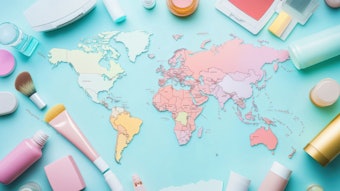As the global environmental issue of banning microbeads gains traction, Comité International d’Esthétique et de Cosmétologie (CIDESCO) has called on its global membership of beauty centers to replace their skincare products containing plastic microbeads with safer and more eco-friendly alternatives.
“Plastic pollution has become a man-made global catastrophe," said CIDESCO's president, Anna-Cari Gund. "As a worldwide organization, we know that together our members can make a difference in helping to prevent this situation getting worse. We have therefore issued an appeal to all our members to review the products they are using and where necessary swap the products containing microbeads with safe alternatives.”
Proponents of the microbeads ban have argued that fish often mistake non-biodegradible plastic microbeads for food and eat them, resulting in toxins further up the food chain. Plastic microbeads, which are defined as plastic pieces measuring less than 5 millimeters, are used in some cosmetic products including scrubs, exfoliators, cleansers and soaps. As a result, a recent June 2015 report released by the UN Environment Programme (UNEP) recommends a precautionary approach toward microplastic management, with an eventual phase-out and ban of their use in personal care products and cosmetics. A total of 4360 tonnes of microplastic beads were used in 2012 across all EU countries plus Norway and Switzerland according to a survey by Cosmetics Europe, which focused on the use of microplastic beads with polyethylene beads representing 93% of the total amount equaling 4037 tonnes.
On a global scale, the Netherlands was one of the first EU countries to draw attention to the issue and it has already banned the use of microbeads across the country. In the U.S, Illinois became the first watershed state to ban microbeads in 2014 followed by a number of other states including California, New Jersey, Wisconsin—and most recently Connecticut. Several other watershed states, including New York, have bills in process that are seeking final legislative approval.
Commenting on the issue, Steve Malkin, CEO of Planet First, a specialist in sustainable business practice, said one cannot remove microbeads from the environment as they are too small to catch in water treatment and they don't degrade.
“The solution is for companies to stop producing products with microbeads and to use natural alternatives,” said Malkin. “It's better for the planet, us and our fellow species.”
A number of cosmetic and personal care companies, including multinational giants, have already eliminated or have announced plans to eliminate microbeads from their products such as Unilever, Procter & Gamble, Johnson & Johnson, Beiersdorf, Colgate-Palmolive and L'Oréal.










